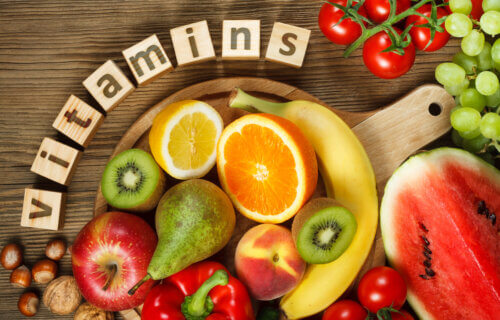Immune system health has become that much more important in a post-pandemic world. COVID-19 called attention to the need for a strong and healthy immune system. Unfortunately, unhealthy lifestyle choices such as forgoing exercise and surviving on fast-food leave many people in a state of weakness when it comes to fighting off illnesses. It’s for this reason that we searched the web to find the consensus best vitamins you can take to support your immune system, according to health experts.
Of course, the best way to get adequate amounts of vitamins is through whole foods, but for many people supplementation is necessary. Though, when it comes to multivitamins and the like, there is much uncertainty surrounding their effectiveness, and that’s where we turn to research for answers. Research out of Northwestern University shows that vitamins’ “health benefits are mainly in the mind and some may even do more harm than good.” The lead author of the study says that patients are “wasting money and focus thinking there has to be a magic set of pills that will keep them healthy when we should all be following the evidence-based practices of eating healthy and exercising.” Yet the supplement industry only gains momentum as people search for answers and fixes in bottles. But vitamins are necessary, and there is also research to support the benefits of certain vitamins.
Let’s step out of doom and gloom and into the sunshine. And we all know that sunshine provides that oh-so-necessary vitamin. Research shows that vitamin D is especially helpful in warding off colds, the flu, and respiratory infections. “Researchers at the Queen Mary University of London found that vitamin D has health benefits beyond its effect on muscle and bone, what it is most known for, and could lead the way for new public health policies, such as infusing food with the vitamin.” Though an important caveat, the lead researcher in the study says that “the protective effects of vitamin D supplementation are strongest in those who have the lowest vitamin D levels, and when supplementation is given daily or weekly rather than in more widely spaced doses.” So, taking it just to take it if your vitamin D levels are already sufficient may not give you any additional boost.
Vitamins can improve many different health needs. Ready to achieve that much-needed boost? Below is our list of the top five best vitamins for your immune system, according to health experts. Of course, we want to hear from you. Which vitamins do you take to keep you healthy? Comment below to let us know!

The List: Best Vitamins for Your Immune System, Per Health Experts
1. Vitamin C
No surprise here. Vitamin C has long been touted as a go to for immunity; and it seems parents have been pouring glasses of orange juice for children since the dawn of time because of it. The Cleveland Clinic writes, “Vitamin C is one of the biggest immune system boosters of all. In fact, researchers say vitamin C deficiency can make you more prone to getting sick. Vitamin C acts as an antioxidant, meaning it can protect your body from toxins that cause inflammation in your body…Getting your intake of vitamin C on the regular is essential for good health because your body doesn’t produce it on its own. It also doesn’t store it to use later. The good news is that vitamin C is in so many foods that most people don’t need to take a vitamin C supplement unless a doctor advises it.”
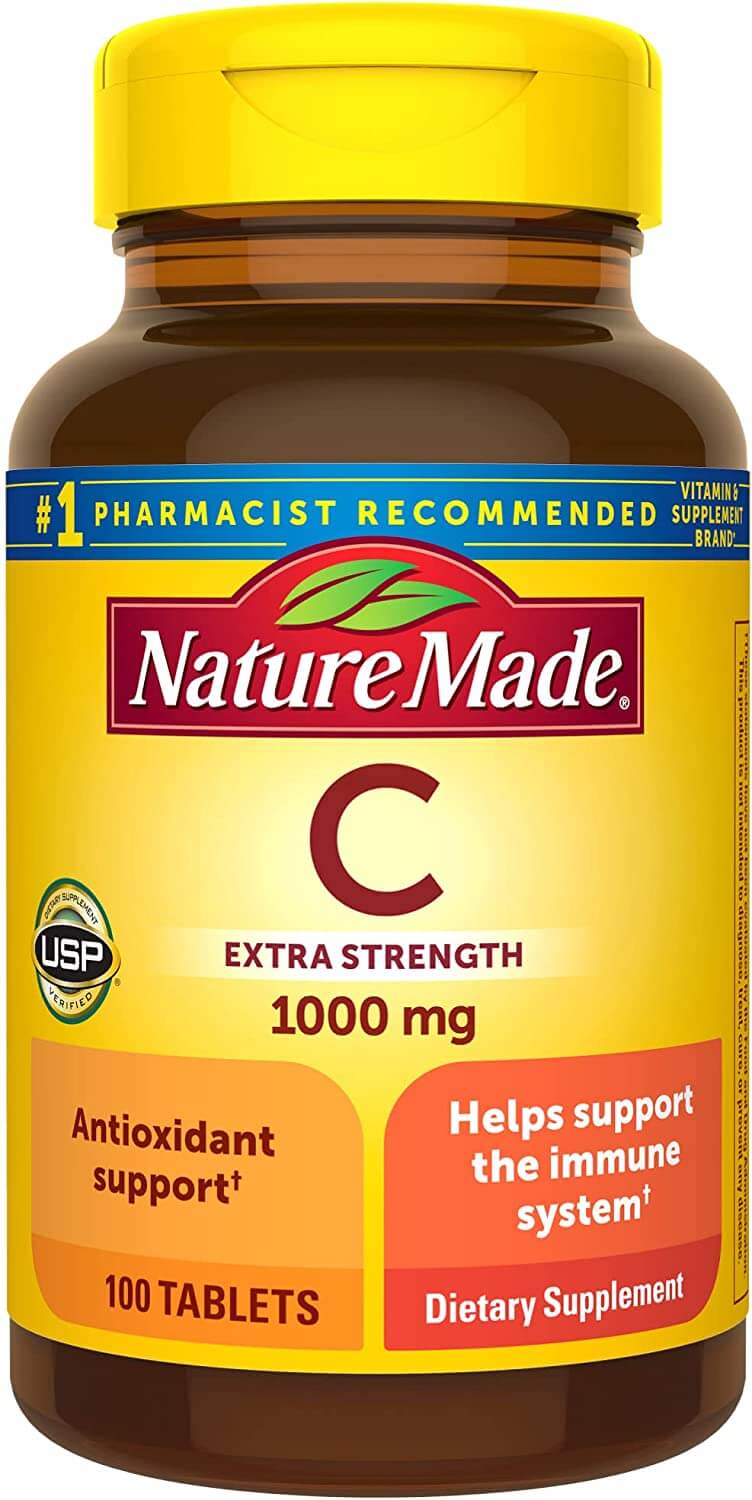
And as for those foods they’re talking about that contain vitamin C, that includes red bell peppers, oranges and orange juice, grapefruit juice, kiwi, green bell peppers, cooked broccoli, strawberries, brussels sprouts, grapefruit, and raw broccoli.
“You’ve likely heard that vitamin C is important for immune function and shortening the duration of a pesky cold, but it actually does a whole lot more,” writes Women’s Health. “Vitamin C also plays a tremendous role in wound healing, which is a huge part of maintaining your immune system by keeping your skin barrier intact, says Simon.”
Healthline writes, “This vitamin supports the function of various immune cells and enhances their ability to protect against infection. It’s also necessary for cellular death, which helps keep your immune system healthy by clearing out old cells and replacing them with new ones…Supplementing with vitamin C has been shown to reduce the duration and severity of upper respiratory tract infections, including the common cold. A large review of 29 studies in 11,306 people demonstrated that regularly supplementing with vitamin C at an average dose of 1–2 grams per day reduced the duration of colds by 8% in adults and 14% in children.”
2. Zinc
The body may not require large amounts of Zinc, but that doesn’t mean it doesn’t play a large role in health. Harvard University writes, “Zinc is a trace mineral, meaning that the body only needs small amounts, and yet it is necessary for almost 100 enzymes to carry out vital chemical reactions. It is a major player in the creation of DNA, growth of cells, building proteins, healing damaged tissue, and supporting a healthy immune system.”
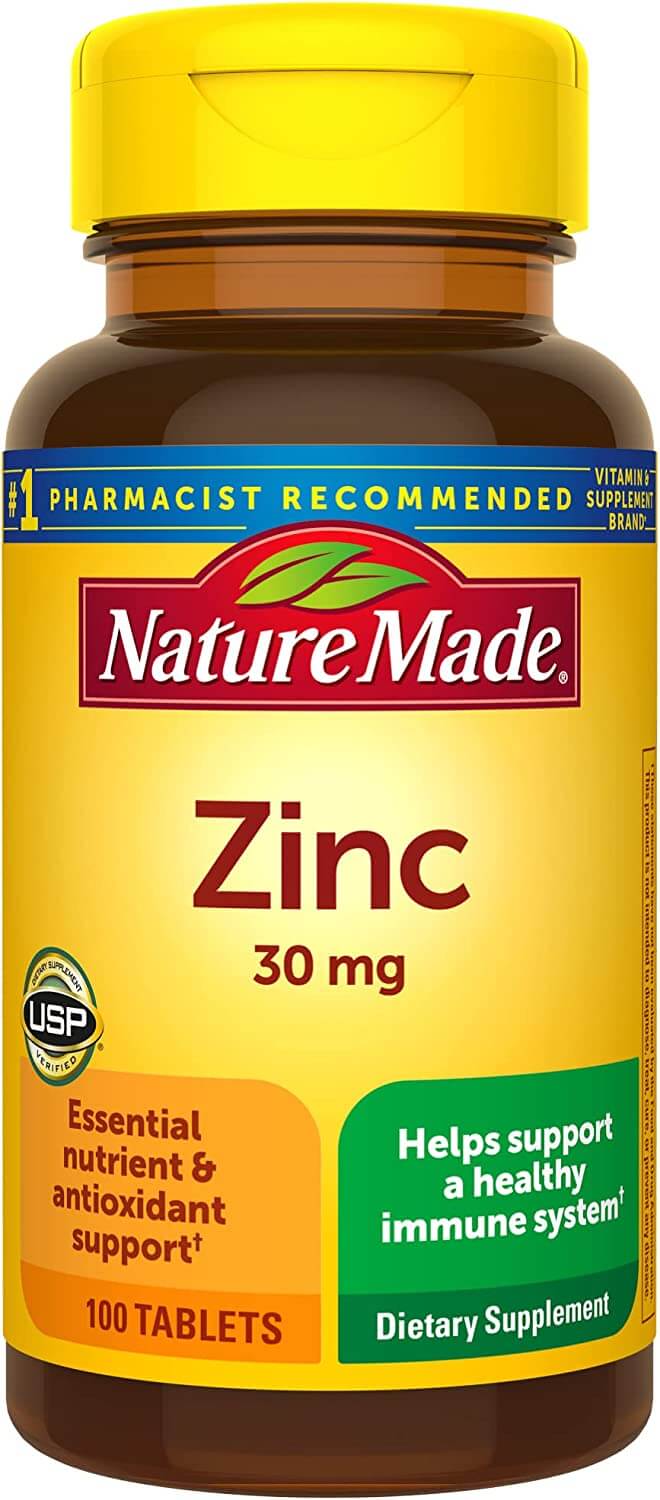
CNBC writes, “The World Health Organization reports that between 17% and 30% of the world population has a zinc deficiency, potentially affecting health outcomes. Zinc is a trace mineral with crucial effects on the effectiveness of the cells and cytokines of our innate and adaptive immune systems. Zinc aids in fighting viruses, protects us from free radical damage to our cells, and has been shown to shorten the duration of a cold when given as a supplement.” And as far as what foods contain Zinc: “Zinc is found at high levels in oysters, beef and crab, and in lower amounts in legumes, tofu, pumpkin seeds, cashews and other nuts and seeds. I recommend adding in 15 to 30 milligrams of zinc daily, especially during the fall and winter months and at the first signs of cold or flu.”
“Zinc is a micronutrient that can help the immune system fight off invading viruses and bacteria,” writes Forbes. “‘Zinc is a very popular remedy for the common cold, and extensive research confirms its efficacy,’ says Friedman. In fact, results from 13 randomized placebo-controlled trials show taking zinc soon after the onset of symptoms of the common cold can significantly reduce both the duration and severity of symptoms. Studies have also alluded to the efficacy of zinc supplementation in thwarting COVID-19 and other respiratory infections.” They say that “While zinc is prevalent in oysters, crab, lobster, beef, chickpeas, cashews and beans, it can be hard to get enough for an immunity boost through diet alone when you’re sick. In such cases, supplementation in capsule, tablet or lozenge form may be a good idea. ‘The recommended daily zinc intake is 8 milligrams for women and 11 milligrams for men,’ says Friedman.”
Men’s Health writes, “‘Many people don’t get enough zinc, especially those who adhere to a plant-based diet since most zinc-rich food sources are animal products,’ Dr. Malinow says. It’s a mineral with anti-inflammatory and antioxidant properties, and research calls it the ‘gatekeeper of immune function.’ Zinc may also have antiviral properties. However, zinc can be tough to absorb, so Dr. Malinow says when he prescribes it in supplement form, he pairs it with the antioxidant quercetin, which helps with absorption.” And for some additional food sources that provide Zinc, they list shrimp, turkey breast, pork, cheese, pumpkin seeds, yogurt, milk, and canned sardines.
3. Vitamin D
Everyone knows the best source, the sun, but not everyone can get out to enjoy those rays. Nor does everyone live in areas of abundant sunshine. This doesn’t change the fact that the body requires this vitamin to function properly.
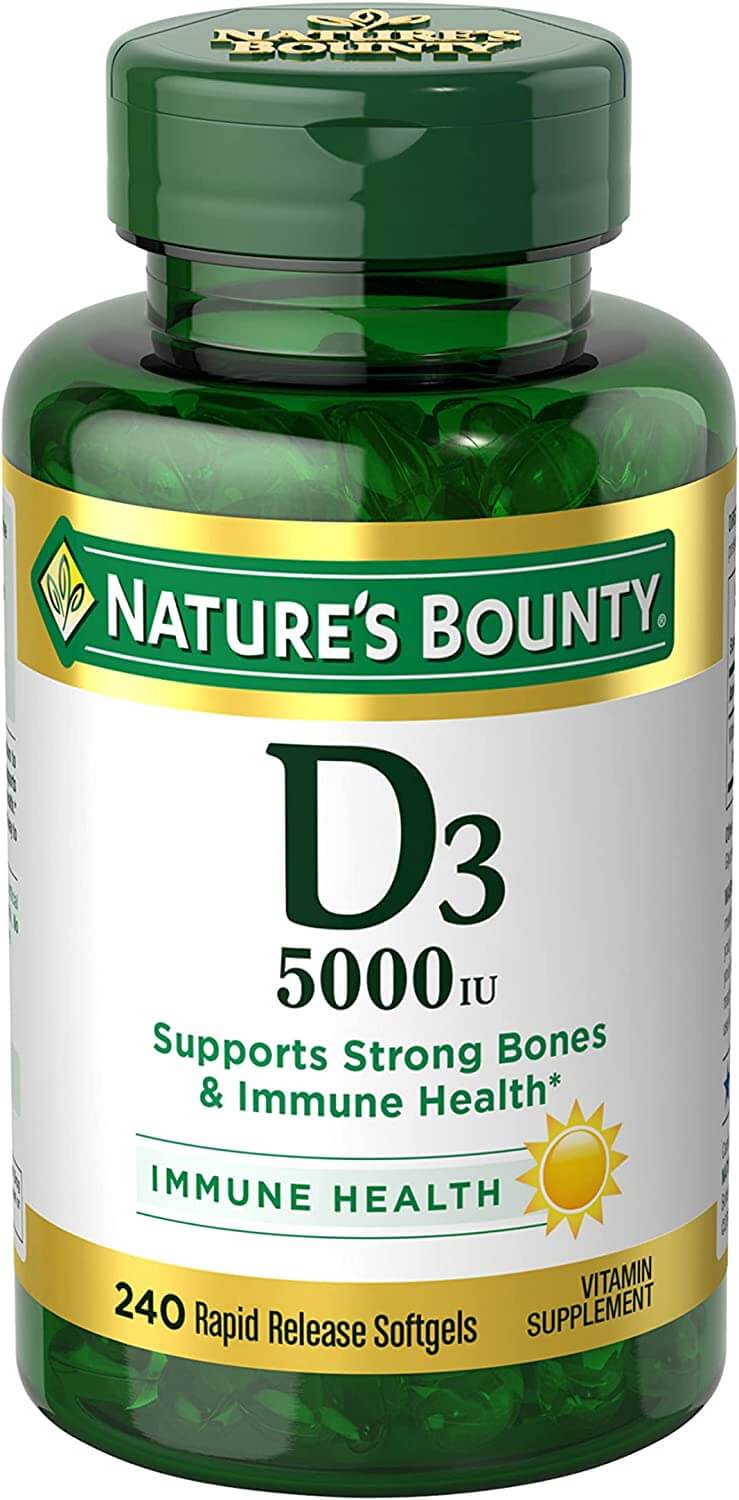
“Apart from helping you build strong bones, vitamin D boosts your immune system,” writes GoodRx. “This vitamin can help your body fight off viruses and bacteria and, in turn, prevent illnesses like the flu. Having a deficiency in vitamin D is also associated with the development of autoimmune diseases, which cause the immune system to attack healthy cells in your body…Foods that are high in vitamin D include: Fish like tuna, trout, and salmon; Cod liver oil; Certain mushrooms that have been exposed to ultraviolet (UV) light; Yogurt; Dairy milk; Plant-based milks, like almond, soy, and rice milk; Orange juice; and Some cereals.” Though they do warn that getting it from the sun may not be the best option: “Although you can get vitamin D from exposure to sunlight, UV rays from the sun are harmful and can increase the risk of skin cancer. This is why you may be better off getting this vitamin through food or, if recommended by a healthcare provider, a vitamin D supplement.”
Healthline writes: “Vitamin D enhances the pathogen-fighting effects of monocytes and macrophages — white blood cells that are important parts of your immune defense — and decreases inflammation, which helps promote immune response…Many people are deficient in this important vitamin, which may negatively affect immune function. In fact, low vitamin D levels are associated with an increased risk of upper respiratory tract infections, including influenza and allergic asthma.”
According to CNBC, “Vitamin D deficiency is a worldwide issue, which is a problem because this superstar vitamin modulates so many aspects of our immune function. It makes our innate immune system more efficient in killing bacteria and viruses, and can reduce the frequency of upper respiratory infections…Low vitamin D has also been correlated with a higher incidence of autoimmune disease like multiple sclerosis. Because vitamin D isn’t found readily in many foods (save for fatty fish, cod liver and fortified foods), most people benefit from vitamin supplementation, especially in the winter months or if they don’t spend much time outdoors on a regular basis.” They suggest “starting with 1,000 to 2,000 international units per day, taken with a meal,” but always consult your physician before supplementing.
4. Vitamin B6
One of eight B vitamins, this essential, water-soluble vitamin is found in many foods you probably already eat. And this is good news because it means you most likely won’t have to go out of your way and start taking a supplement to get it.
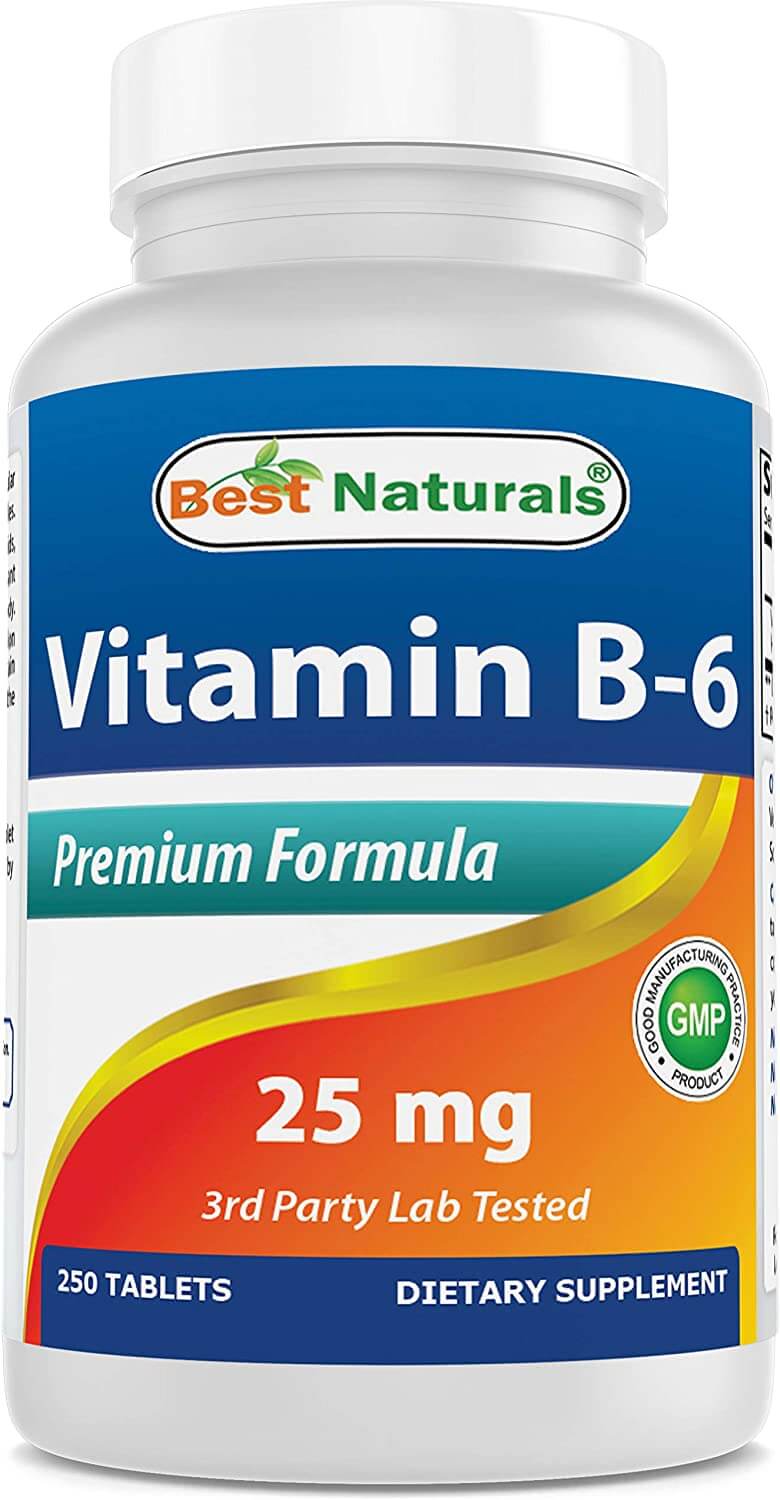
“Vitamin B generally refers to a group of eight vitamins (which includes riboflavin and niacin), but when it comes to immunity, vitamin B6 is the one to focus on,” writes Forbes. “Otherwise known as pyridoxine, vitamin B6 is in charge of keeping the immune system strong, aiding in the production of white blood cells and T cells (which regulate immune response) and helping transport oxygen throughout the body. Vitamin B6 deficiencies can lead to a reduction in antibodies needed to ward off infection.” And as far as which foods are rich in B6, they say, “Heritage and pasture-raised pork and poultry deliver plenty of vitamin B6. Tuna and salmon are also good options. Plant sources include peanuts, soy, chickpeas, leafy greens, oats and bananas.”
The Cleveland Clinic writes, “The old saying, ‘An apple a day can keep the doctor away,’ may have some truth behind it after all. Eating nourishing foods rich in certain vitamins can help your immune system fight off illness…B6 is vital to supporting biochemical reactions in your immune system. One of its major roles is in producing white blood cells and T-cells. Those are the cells in your body that respond to fight off invaders, like viruses and bacteria.”
Unity Point Health recommends Vitamins B6, C and E for their immune-boosting properties. “You can get all of these vitamins from a well-balanced diet, so you don’t need supplements. Some foods rich in these vitamins include eggs, bell peppers, spinach and almonds.”
And Men’s Health writes that “Vitamin B6 helps regulate the immune system. It spurs the production of white blood cells and T-cells that help your body fight bacteria, viruses, and other harmful substances. It also has anti-inflammatory benefits.”
5. Vitamin E
Though less popular, Vitamin E is just as important to immune function. Harvard University writes, “Vitamin E is a fat-soluble vitamin with several forms, but alpha-tocopherol is the only one used by the human body. Its main role is to act as an antioxidant, scavenging loose electrons—so-called ‘free radicals’—that can damage cells. It also enhances immune function and prevents clots from forming in heart arteries.”
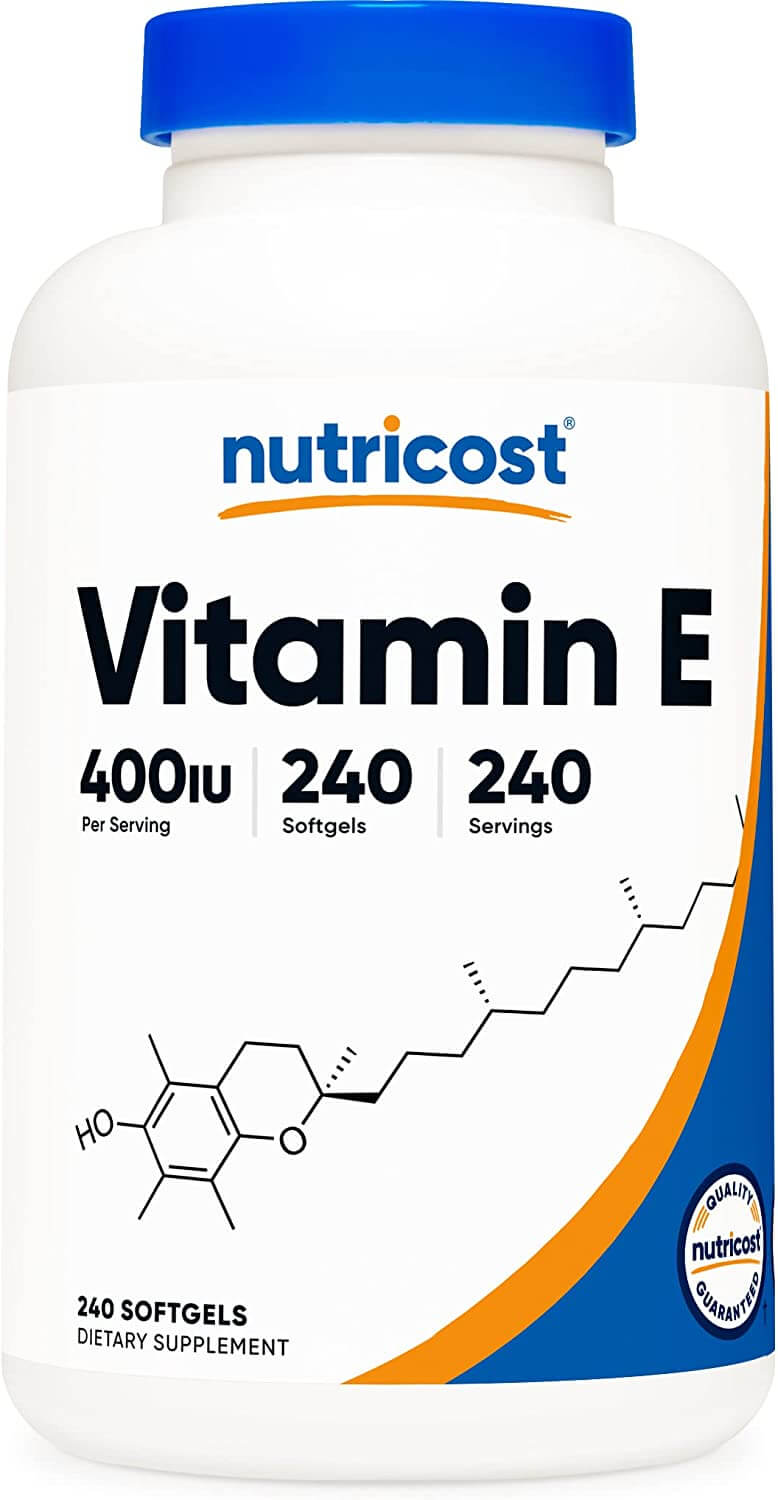
“Vitamin E is another fat-soluble vitamin with powerful antioxidant properties to help support immune cell production,” writes Women’s Health. “‘Vitamin E helps support T-cell growth, or the white blood cells that play a major role in immune functioning,’ explains Simon. ‘When we think about cells in the body that defend and fight off pathogens, vitamin E helps to support the growth of those defense T-cells.’” And as for which foods to turn to, they recommend eggs, nuts, sunflower seeds, red bell peppers, spinach, kale, and arugula.
And from Men’s Health: “‘Vitamin E protects you from free radicals, which can cause illness, and helps the body fight off infections,’ Berger says. Research shows it’s one of the most important nutrients in immune function and helps your T-cells, a type of white blood cell, work at their best.” For food sources, they list nuts “(almonds and peanuts especially),” nut butters, seeds, wheat germ oil, mango, and kiwi.
The Cleveland Clinic writes, “Vitamin E is a powerful antioxidant that helps your body fight off infection. Researchers say vitamin E is one of the most effective nutrients for your immune function. That’s because it helps keep your T-cells working at peak performance.” They emphasize that you should “load up your plate” with “vitamin-E filled foods.”
You may also be interested in:
- Best Vitamins for Healthy Skin
- Best Vitamin D Supplements
- Best Children’s Multivitamins
- Best Vitamins for Energy
Sources:
- Cleveland Clinic
- Healthline
- Unity Point Health
- CNBC
- Forbes
- Women’s Health
- Men’s Health
- GoodRx
- Harvard University (Zinc)
- Harvard University (Vitamin E)
Note: This article was not paid for nor sponsored. StudyFinds is not connected to nor partnered with any of the brands mentioned and receives no compensation for its recommendations. This post may contain affiliate links.
